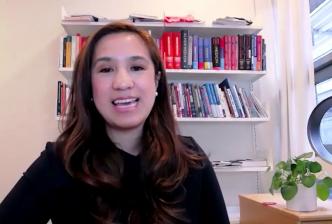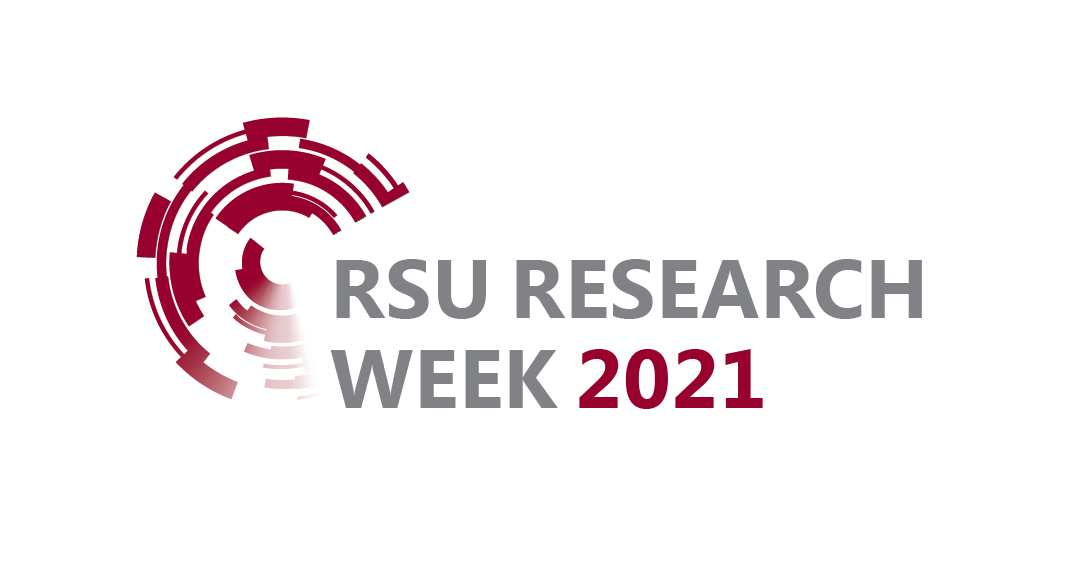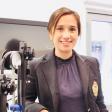.
University Teaching and Learning
24 & 26 March 2021 Rīga Stradiņš University (Online @ Zoom)
Technologies for Education→←Education for Technologies
Technology Enhanced Learning – The Big Whys and Hows
The main focus of the conference is dedicated to the scientific and evidence-based conclusions regarding the implementation of technology enhanced study process, which will be uncovered in the following aspects:
- The digital competence of students and academic staff;
- Evidence of increased effectiveness of technology enhanced learning and teaching;
- Digital transformations of the study environment;
- Simulation based teaching and learning;
- Teaching and learning medical humanities.
Agendas
- 24 March: Simulation based teaching and learning (oral presentation & poster session, workshop)
Keynote speaker
Room: Senate SESSION I (Moderators: Leizl Joy Nayahangan, Ieva Šlēziņa) Time frame # Title Speaker 14:00–14:30 Start right, finish right: Aligning simulation-based training to current needs Leizl Joy Nayahangan RN, MHCM, Copenhagen Academy for Medical Education and Simulation, Denmark 14:30–14:42 653 A National Level COVID-19 Training in Lithuania Ruta Marija Nadišauskaitė, Aida Mankute, Dinas Vaitkaitis, Paulius Dobožinskas, Lithuania 14:42–14:54 722 A Novel HybridLab® Learning Method Improves Practical Skill Performance of the Endotracheal Intubation as Compared to Conventional Learning: a Randomised Controlled Study Aida Mankute, Dinas Vaitkaitis, Paulius Dobožinskas, Andrius Macas, Laima Juozapavičienė, Lithuania 14:54–15:06 1012 Simulation and real-life experience based interactive video tutorial for basic skills in percutaneous biliary drainage procedure Aina Kratovska, Nauris Zdanovskis, Veronika Zaiceva, Andrejs Mundeciems, Iļja Dmitrijevs, Sanita Ponomarjova, Latvia 15:06–15:18 561 Interventional Radiology Video Content Gamification for Improved Learning Experience Nauris Zdanovskis, Aina Kratovska, Ardis Platkājis, Latvia 15:18–15:30 871 Task trainers for distant home simulation training during Covid-19 restrictions Aleksejs Rutkovskis, Mārtiņš Ļuļļa, Aleksandrs Oborins, Anastasija Gromova, Lelde Jaunzeme, Everita Albiņa, Estere Justīne Vilka, Jekaterina Zvidriņa, Baiba Kliemane, Latvia POSTER SESSION (15:30–16:00) DISTANCE SIMULATION WORKSHOP (16:00–17:30) Reinis Balmaks, MD, PhD, Simulation Instructor, Medical Education Technology Centre, Rīga Stradiņš University, Latvia COVID-19 shutdown has created the need for many of the meetings, teaching, and assessments to go virtual, including clinical simulation. Although there are obvious drawbacks, particularly in the training of psychomotor skills, Rīga Stradiņš University has successfully implemented virtual simulation in undergraduate and postgraduate programs. Interestingly, the examples of e-training in cycling and fitness have shown that the virtual world can connect people in ways that were previously impossible.
Audience: lecturers in medicine, simulation technicians, instructors and facilitators
Software: Zoom, OBS studio (not mandatory to install).
Learning outcomes: by the end of this workshop the participants will be able to hold distance simulation teaching via teleconference platforms.- 26 March: Technology Enhanced Learning and medical humanities (oral presentation & poster session)
Room: Senate ORAL PRESENTATION SESSION (Session chair: Vija Sīle) Time frame Title Speaker 10:30–10:45 #428 In Search of New Approaches of Placing Sociology into Education of Medicine: Theoretical Review Dina Bite 10:45–11:00 #512 Heidegger and the Question Concerning Technology Laura Bitiniece 11:00–11:15 #668 Subjectivity and Human Being in the Phenomenology of Husserl. Personalistic, Naturalistic and Phenomenological Attitude Uldis Vēgners 11:15–11:30 #887 Jungian Archetypes in Modern Psyche Vents Sīlis 11:30–11:45 #881 Modern Human from the Perspective of Erich Fromm Mairita Satika, Vija Sīle 11:45–12:00 #771 Biophilosophical Approach to Future Challenges in Medical Humanities Andrejs Balodis BREAK / POSTER SESSION (12:00–13:00) ORAL PRESENTATION SESSION (Session chair: Tatjana Koķe) 13:00–13:15 #755 Reshaping the faculty professional competence: from face to face teaching to remote learning Nora Jansone-Ratinika, Tatjana Koķe, Raimonds Strods 13:15–13:30 #971 The influence of different approaches to remote learning on student learning outcomes at Rīga Stradiņš University Māris Brants, Aigars Zupa, Matīss Sīlis, Nora Jansone-Ratinika, Uldis Doniņš, Zigmunds Zitmanis 13:30–13:45 #273 Distance learning during COVID-19 Pandemic among healthcare students Sanita Litiņa, Karīna Svētiņa 13:45–14:00 #779 How does remote learning affect the acquisition of the Latvian language? Solveiga Čeirane, Daiga Tetere, Dace Žibala 14:00–14:15 #486 Introducing team based learning webinars in pathological anatomy is motivating the students to study continuously during semester Ave Minajeva, Hannes Tamm, Ingrid Mesila, Triin Marandi 14:15–14:30 #495 Transformation of the anatomy class: two modern applications for use Dzintra Kažoka, Māra Pilmane 14:30–14:45 #889 Digital virtual patient simulation as an innovative learning solution in pathology education Matīss Sīlis, Romāns Uljanovs, Evita Grigoroviča, Ilze Štrumfa 14:45–15:00 #241 How medical practitioners define their continuous professional development: implications for Simulation-based teaching and learning Reinis Upenieks, Oskars Kaulēns
International Scientific Committee
- Prof. Dr. habil. paed. Tatjana Koķe, Vice-Rector for Studies, RSU, Latvia
- Prof. Dr. med. Guntis Bahs, Vice-Rector for Health Studies, RSU, Latvia
- Nora Jansone-Ratinika, Dr. paed., Assoc. professor, Director of the Centre for Educational Growth, RSU, Latvia
- Prof. Andis Klegeris, Department of Biology, University of British Columbia (UBC), Okanagan Campus, Canada
- Prof. Vija Sīle, Head of the Department of Humanities, RSU, Latvia
- Asst. Prof. Reinis Balmaks, Simulation Instructor, Medical Education Technology Centre, Rīga Stradiņš University, Latvia
- Assoc. Professor Dina Bite, Department of Humanities, RSU, Latvia
- Ieva Šlēziņa, M.D, Director, Medical Education Technology Centre, RSU, Latvia
- Raimonds Strods, Teaching and Learning Project Manager, Study Innovation Project Unit, RSU, Latvia
- Bruno Žuga, E-study Content Administrator, Study Process Quality Analysis Unit, RSU, Latvia
Organising Committee
- Nora Jansone-Ratinika, Dr. paed., Assoc. professor, Director of the Centre for Educational Growth, RSU
- Inguna Blese, Head of Study Innovation Project Unit, RSU
- Raimonds Strods, Teaching and Learning Project Manager, Study Innovation Project Unit, RSU
Related news
 Interview with keynote speaker Leizl Joy NayahanganUniversity teaching and learning
Interview with keynote speaker Leizl Joy NayahanganUniversity teaching and learning

